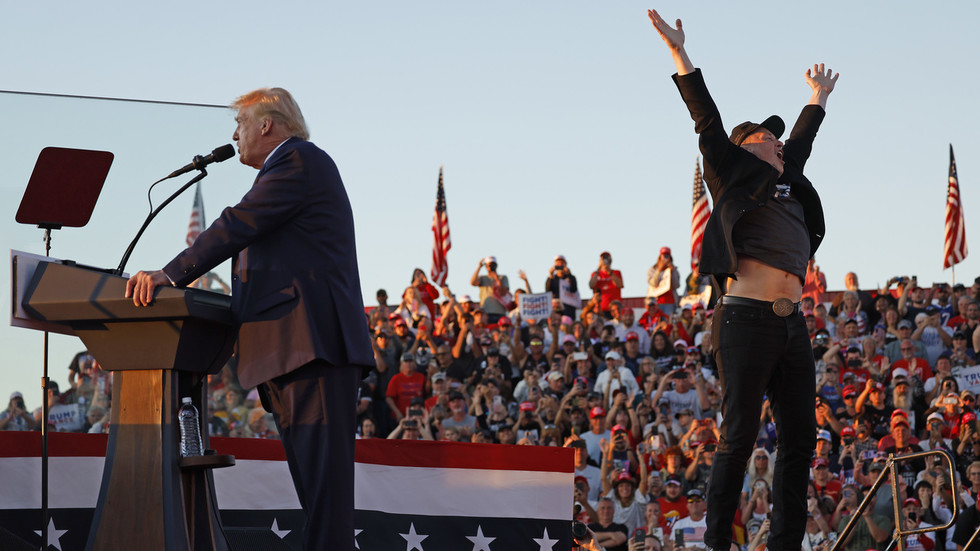The 2024 election has showcased a decisive shift in American politics, reflecting a strong repudiation of Democratic elitism. The overwhelming success of the Trump administration, which resulted in the capture of the House, Senate, and the presidency, speaks volumes about the electorate’s desire for change. The voting results revealed an unmistakable sentiment among the working class, who expressed their frustration with the status quo marked by endless wars, deceptive narratives, censorship, and a media establishment perceived as complicit. Unexpectedly, this election also saw a tangential focus on issues like government overreach—illustrated by incidents such as the Pennsylvania government seizing goods from Amish farms—which mobilized voters to voice their dissent, highlighting how local actions can resonate deeply in broader political contexts.
A critical factor influencing the election was the pronounced distrust in mainstream media. Surveys indicated that nearly 70% of the American populace no longer had faith in traditional news outlets. Attempts by figures like former White House Press Secretary Jen Psaki to shift blame onto social media as a disruptor of information were met with skepticism. In reality, platforms like X (formerly Twitter) have evolved into essential spaces for unfiltered communication, allowing everyday citizens to challenge the narratives pushed by established media. This shift has had tangible consequences, as mainstream outlets like CNN faced plummeting viewership and layoffs, reinforcing the notion that the public is increasingly seeking alternatives to conventional news sources.
In their desperation to maintain power, the Democratic Party’s strategies began to resemble the fading embers of a crumbling monarchy. Relying heavily on endorsements from establishment figures such as Dick Cheney and leveraging celebrity influence—including significant payouts to the likes of Oprah Winfrey—demonstrated the widening gap between elite politicians and the working class. This disconnect became more apparent with each passing election campaign, underscoring how out of touch certain political factions have become with the very voters they claim to represent. Meanwhile, the Trump administration’s approach in the wake of the election suggests a commitment to novel governance strategies that challenge traditional norms.
Among the key figures poised to shape the new administration is Matt Gaetz, a vocal advocate for limited government and a prominent opponent of federal overreach. Gaetz’s appointment symbolizes a shift towards populism, prioritizing the views of the administration’s base while often clashing with more entrenched political elements. His past interactions—such as expressing concern for whistleblower safety—further solidify his role as an ally to those disenchanted by bureaucratic inefficiency. This hints at a potential for significant policy changes under Trump, echoing the electorate’s demands for accountability and a departure from globalist doctrines.
Joining Gaetz in the emerging administration is Tulsi Gabbard, known for her criticism of U.S. foreign policy and opposition to the Democratic establishment. Gabbard’s bipartisan appeal and her stance against interventionist wars position her as a pivotal figure amid the political upheaval. Her consistent critique of U.S. involvement in foreign conflicts, particularly regarding the ongoing proxy war between NATO and Russia, reflects a broader desire amongst certain voter demographics for a reevaluation of America’s role on the global stage. Such choices by the Trump administration signal a willingness to prioritize fresh perspectives over conventional wisdom, further appealing to voters disenchanted with longstanding party loyalties.
The backlash from neo-liberal circles in response to these appointments has been characterized by outrage and blame, underscoring a failure to address the deep-seated frustrations of the American populace. Many individuals who had been marginalized or described disparagingly by Democrats found acknowledgment within the Trump administration, illustrating how the landscape of American politics is undergoing fundamental realignment. The 2024 election showcased an electorate that seeks to reclaim its voice, promoting candidates who resonate more closely with their experiences and grievances rather than adhering to the dismissive attitudes of elite political figures. Overall, this election not only illustrated a rejection of the Democratic elite but also initiated a transformative era in U.S. politics that emphasizes the experiences of ordinary citizens in policy-making processes.

